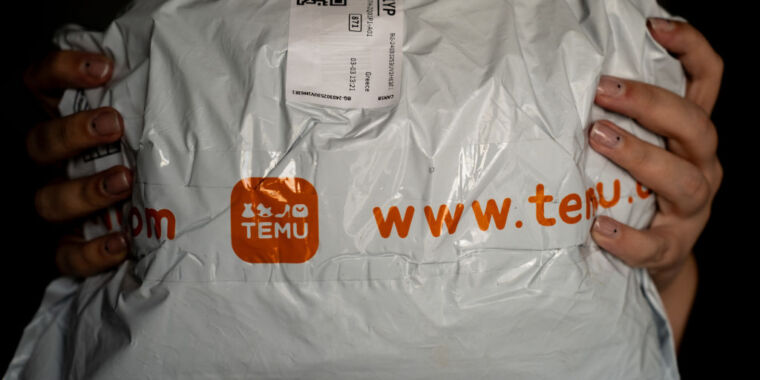Temu—the Chinese shopping app that has rapidly grown so popular in the US that even Amazon is reportedly trying to copy it—is “dangerous malware” that’s secretly monetizing a broad swath of unauthorized user data, Arkansas Attorney General Tim Griffin alleged in a lawsuit filed Tuesday.
Griffin cited research and media reports exposing Temu’s allegedly nefarious design, which “purposely” allows Temu to “gain unrestricted access to a user’s phone operating system, including, but not limited to, a user’s camera, specific location, contacts, text messages, documents, and other applications.”
“Temu is designed to make this expansive access undetected, even by sophisticated users,” Griffin’s complaint said. “Once installed, Temu can recompile itself and change properties, including overriding the data privacy settings users believe they have in place.”



Uh, as someone who does malware analysis, sandbox detection is not easy, and is certainly not something that a non-malware-developer/analyst knows how to do. This isn’t 2005 where sandboxes are listing their names in the registry/ system config files.
I haven’t done sandbox detection for some years now, but around 2020, it was already “difficult” as in hard to write from scratch… yet already skid easy as in “copy+paste” from something that does it already. Surely newer sandboxes take more stuff into account, but at the same time more detection examples get published, simply advancing the starting point.
So maybe TikTok has a few people focused on it, possibly with some CI tests for several sandboxes. I don’t think it’s particularly hard to do 🤷